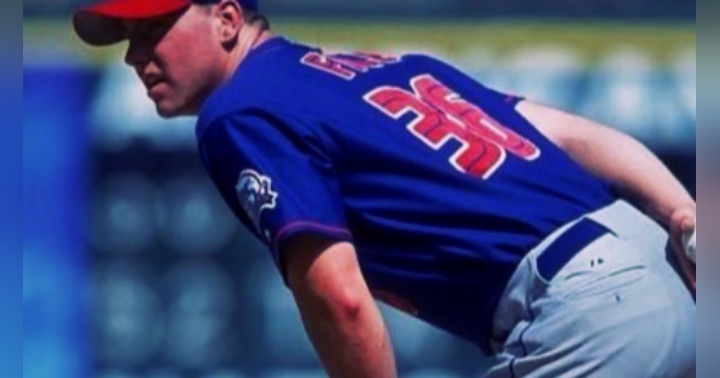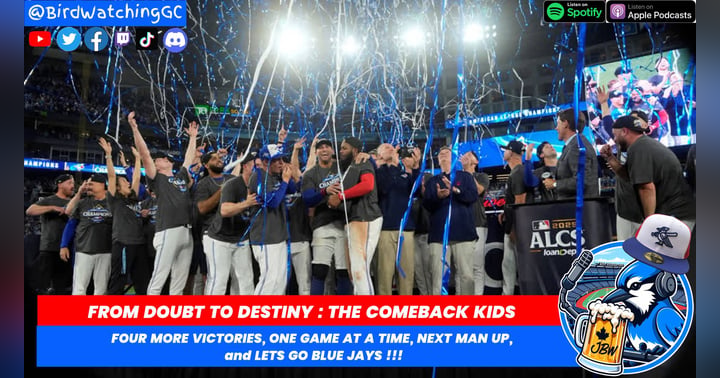An Interview With Jeff Frye: From MLB Infielder to Hitting Mindset Mentor

Former MLB infielder Jeff Frye carved out a unique career by blending mental toughness, relentless work ethic, and a deep understanding of hitting mechanics. From his early days fighting for a roster spot to navigating the grueling 162-game season, Frye’s baseball journey showcases what it takes to survive and thrive in the majors.
Now, through coaching and his "She Gone" podcast, Frye is challenging modern hitting philosophies, arguing that today’s analytics-driven approach may be hurting the game more than helping it.
In this interview on Jay Bird Watching Podcast, Frye shared stories from his time with the Texas Rangers, Boston Red Sox, Colorado Rockies, and Toronto Blue Jays, while offering insights on what makes a great hitter in today’s era.
For the full podcast episode, please go to youtube.com/@birdwatchinggc and subscribe for future updates. Audio can be found on any site you receive your podcast pleasures from as well.
The Road to the Majors: An Unexpected MLB Call-Up
For Frye, reaching the big leagues wasn’t guaranteed—it was earned. Originally drafted in 1988, he played through the minor league grind, battling injuries and roster competition before finally getting his MLB debut with the Texas Rangers in 1992.
That moment came unexpectedly. At 9 AM, while playing in AAA Louisville, he got a call from his manager:
"You’re not going to the AAA All-Star Game, big boy. You’re going to another level."
By 5 PM, Frye landed in Texas, arriving at the ballpark just in time to check the lineup—where he was batting leadoff, playing second base, and watching Hall of Famer Nolan Ryan take the mound for the Rangers. Talk about being thrown into the fire on Day 1.
Surviving the Grind of a 162-Game Season
Playing a full MLB schedule isn’t just about talent—it’s about endurance, Frye explained. With only 18 off days in six months, players battle fatigue, travel exhaustion, and mental pressure to stay productive.
"At the end of the season, if you're not in the playoff race, your body is exhausted. But after two weeks off? You already miss playing," Frye said.
Balancing family life was another challenge. With young kids at home, Frye recalled moments when he’d get home from a road trip at 3 AM, only to have his toddler wake him up at 7 AM, jumping on the bed.
"Even though you're tired, you can't help but be excited to see your kid. You just push through it," Frye said.
Beyond the physical toll, Frye emphasized team chemistry as a major factor for success.
"If you’re stuck next to someone you can’t stand for 7 months, it destroys the locker room. One bad personality can ruin a season."
In his time with Texas, Boston, Colorado, and Toronto, Frye learned that winning teams aren’t just built on talent—they’re built on relationships.
Jeff Frye’s Hitting Philosophy: Why Today’s Approach is Flawed
In an era where launch angles and exit velocity dominate hitting strategies, Frye believes baseball has lost sight of its fundamentals.
"I played my whole life, and no coach ever changed my swing," Frye said. "If a player fails enough, maybe they need adjustments. But so many hitters today are being taught things that don’t actually work."
Frye’s philosophy centers on feel and instinct—not over-mechanics. He recalled watching a backup catcher in the clubhouse, obsessing over dropping his hands an inch in the mirror before games.
"If dropping your hands an inch was going to change your career, you wouldn’t be a backup catcher," Frye joked.
While players like Jose Bautista transformed their careers with mechanical adjustments, Frye cautions that not every hitter needs an overhaul.
"You don’t need a perfect swing—you just need a swing that works for you," he said.
Beyond mechanics, Frye argues that strikeouts have become too accepted in today’s game.
"In my day, we saw strikeouts as failures. Now, guys strike out 200 times a season and analysts say it’s fine as long as they hit homers. That’s not baseball."
He pointed to legends like Tony Gwynn and Stan Musial, whose contact-driven approach led to sustained success, showing that getting on base is just as valuable as hitting bombs.
Jeff Frye’s journey through the majors, lessons on endurance, and hitting wisdom offer a unique perspective on how the game has evolved—and what needs to change. His belief that team chemistry, mental resilience, and old-school hitting are key to success stands in contrast to today’s data-driven approach. While modern baseball prioritizes analytics, Frye remains a voice advocating for balance, ensuring that the art of being a complete hitter isn’t lost in the numbers.










